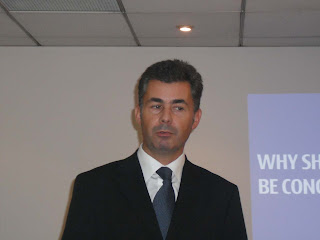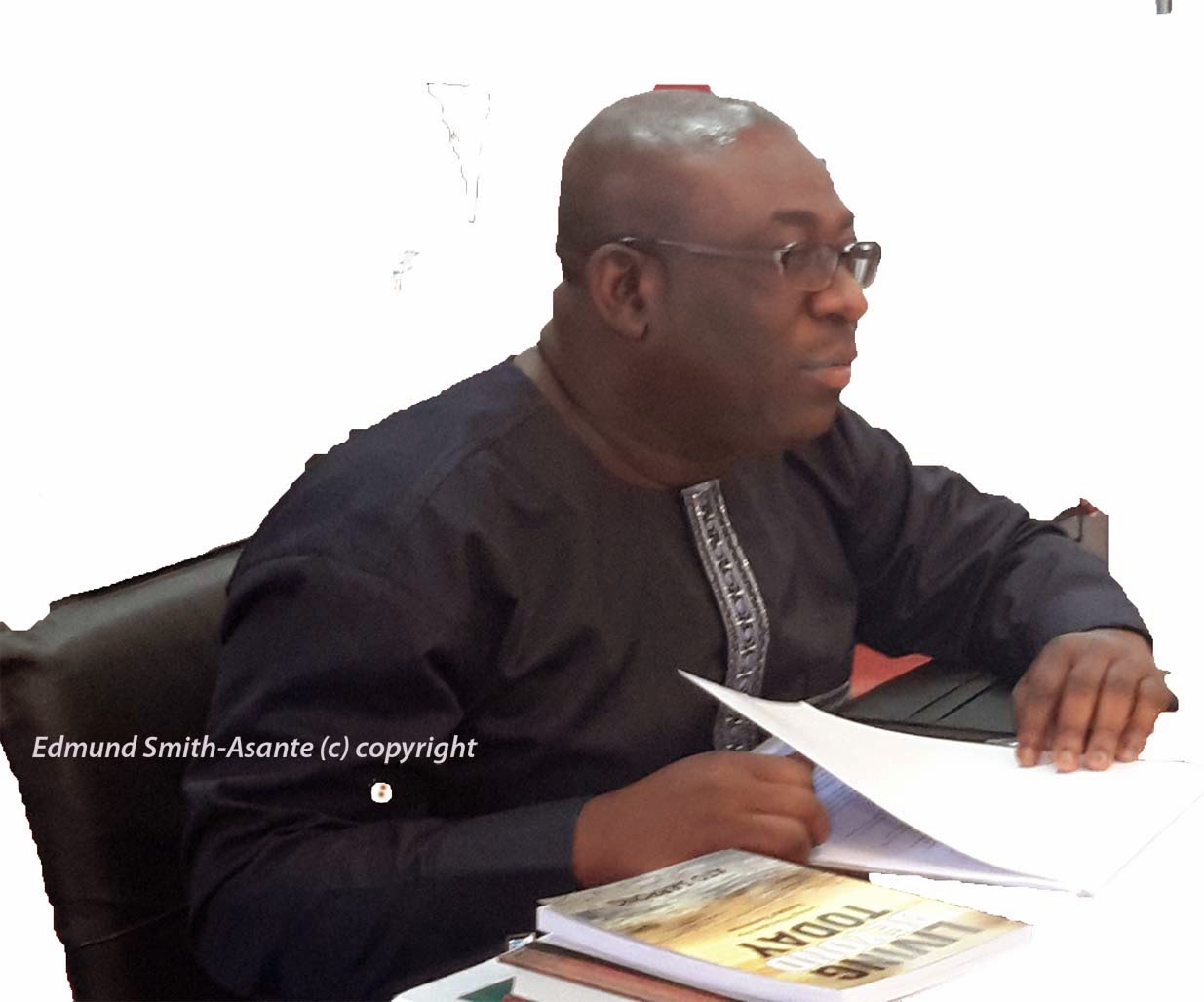Ghana loses $20m in taxes on fake phones each year
BY EDMUND SMITH-ASANTE
In an interaction with a cross section of the Ghanaian media in Accra on Wednesday, December 7, 2011, the Nokia Country Manager for Ghana, said, “They are imported to Ghana illegally without import duties or VAT paid. This creates a tax loss of between US$18 million and US$20 million per annum for the Ghanaian government.”
Apart from import duty loses, Ludovic Falcuo stated that fake devices impact negatively on the performance of operator networks, which lowers operator profits and government tax income.
Listing the ills of fake phones on any people and economy, he said because they are produced with sub-standard materials “Fake devices do not carry IMEI codes and cannot be tracked by network operators. They are widely used in terrorist activities.”
“Fake devices affect the health of the user, because they do not go through any protocol and they are not covered by warranty, resulting in poor consumer satisfaction,” he added.
The Nokia Country Manager also cautioned that owners of fake devices will not be able to benefit from value added services, which are critical for socio-economic development.
Saying the use of fake or imitation mobile phones and devices also results in poor protection of intellectual property, he warned that it makes the establishment and running of ICT companies conducting research and development, very risky in Ghana.
“International companies direct investments to other countries which can protect their intellectual property,” he stated.
Osagie Ogunbor, Nokia Communications Manager, West Africa, who took turns with Falcuo to address the media, however expressed his joy that since Nokia’s introduction and launch of Dual SIM handsets in July 2011, the fake phone market has decreased from March 2011’s percentage of 15 to 7%.
He nonetheless cautioned users of Nokia phones not to be “Pennywise but Pound foolish” by buying fake Nokia handsets, asserting though, that “A lot of people who buy counterfeit devices do not know.”
 |
| Mr. Ludovic Falcuo |
Ludovic Falcuo, Nokia General Manager, Sales, in charge of Ghana and Senegal, has disclosed that Ghana loses between US$ 18 million and US$ 20 million annually, due to the influx of fake mobile phones.
He explained that because the handsets are fake, they do not go through the approved channels of importation, hence the country loses money that should have been charged as taxes on the handsets.In an interaction with a cross section of the Ghanaian media in Accra on Wednesday, December 7, 2011, the Nokia Country Manager for Ghana, said, “They are imported to Ghana illegally without import duties or VAT paid. This creates a tax loss of between US$18 million and US$20 million per annum for the Ghanaian government.”
Apart from import duty loses, Ludovic Falcuo stated that fake devices impact negatively on the performance of operator networks, which lowers operator profits and government tax income.
Listing the ills of fake phones on any people and economy, he said because they are produced with sub-standard materials “Fake devices do not carry IMEI codes and cannot be tracked by network operators. They are widely used in terrorist activities.”
“Fake devices affect the health of the user, because they do not go through any protocol and they are not covered by warranty, resulting in poor consumer satisfaction,” he added.
The Nokia Country Manager also cautioned that owners of fake devices will not be able to benefit from value added services, which are critical for socio-economic development.
Saying the use of fake or imitation mobile phones and devices also results in poor protection of intellectual property, he warned that it makes the establishment and running of ICT companies conducting research and development, very risky in Ghana.
“International companies direct investments to other countries which can protect their intellectual property,” he stated.
Osagie Ogunbor, Nokia Communications Manager, West Africa, who took turns with Falcuo to address the media, however expressed his joy that since Nokia’s introduction and launch of Dual SIM handsets in July 2011, the fake phone market has decreased from March 2011’s percentage of 15 to 7%.
He nonetheless cautioned users of Nokia phones not to be “Pennywise but Pound foolish” by buying fake Nokia handsets, asserting though, that “A lot of people who buy counterfeit devices do not know.”
To find out about the genuineness of a Nokia handset, he advised users to always ask for phones with a 12-month warranty for Ghana, look out for an international mobile equipment identity (IMEI) number on the phone but not on the box and always keep the receipt of purchase.
 |
| From left, Ludovic Falcuo, Osagie Ogunbor and Marketing Manager David Anku fielding questions from the media |
Nokia says in order to reduce the incidence of fake phones, it will soon come out with a standardised and simple way of checking the genuineness of devises purchased by its large clientele.
Currently there are more than 5.3 billion mobile phone users worldwide, with one million subscribers being added every day.
It is envisaged that mobile telephony, which began with shared GSM phones and moved to personal GSMs with voice and SMS, will in the next few years move to mobile internet, a reason why phone users must only use genuine products, in order to be able to access all applications, says Nokia.



Comments
Post a Comment